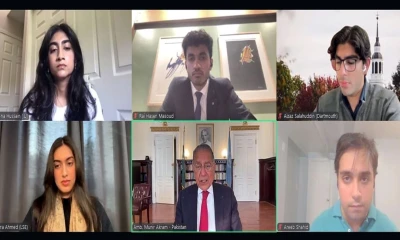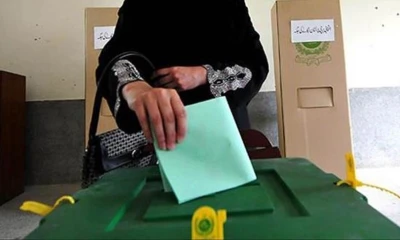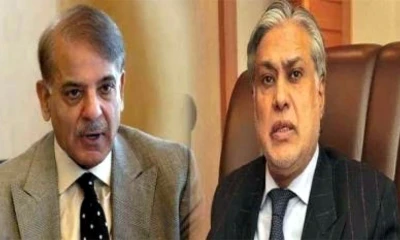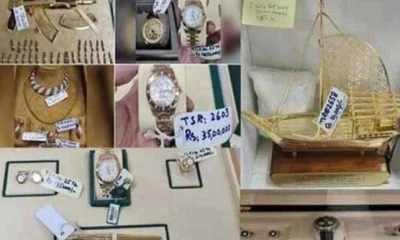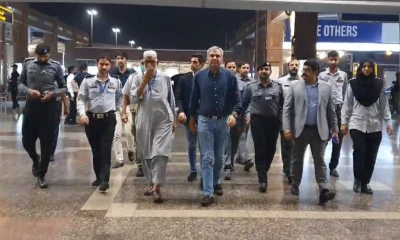Pakistan
Judges’ letter case: SC hearing suo motu for 3rd time
Supreme Court Bar Association also submitted proposals that stated that the Bar will never compromise on the independence of the judiciary
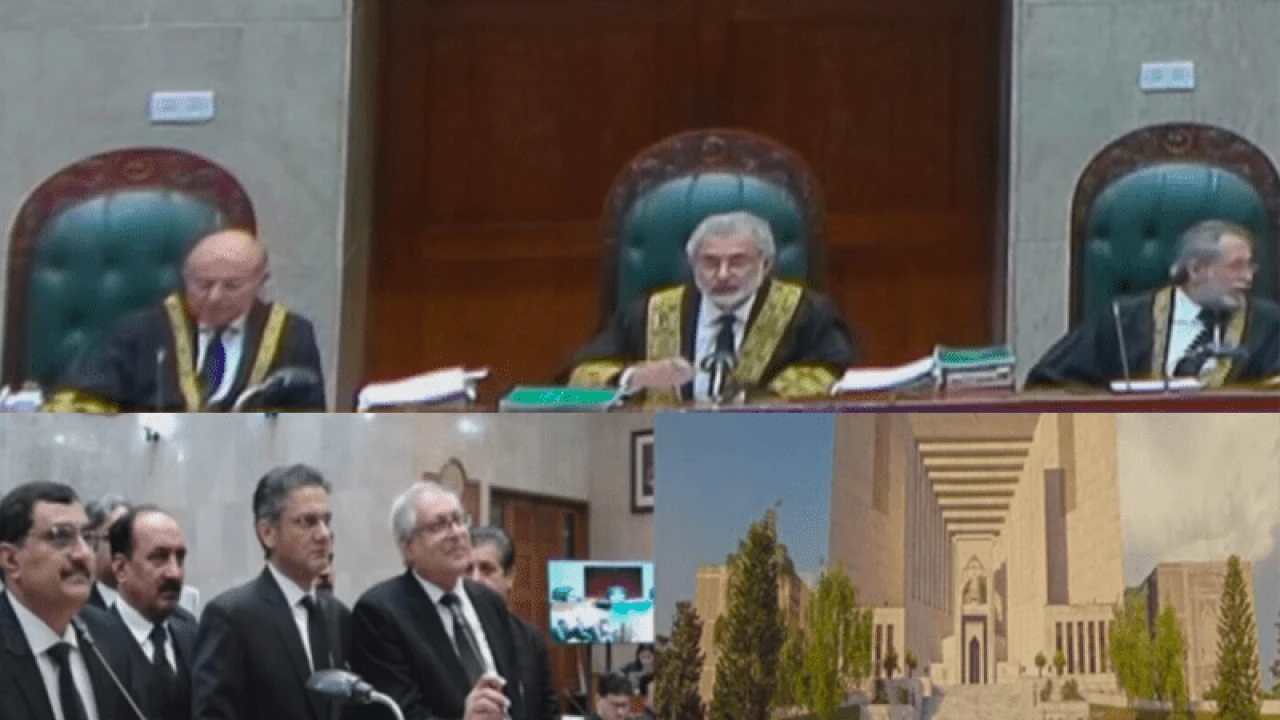
Islamabad: The Supreme Court is hearing the suo motu case of the letter of Islamabad High Court (IHC) judges for the third time today (Tuesday). The proposals of the judges of the high court will be reviewed.
According to details, a six-member larger bench headed by Chief Justice of Pakistan (CJP) Justice Qazi Faez Isa comprising Justice Mansoor Ali Shah, Justice Musarat Hilali, Justice Athar Minullah, Justice Jamal Mandukhel and Justice Naeem Akhtar Afnan will hear the case.
During the hearing, the Supreme Court Bar Association also submitted proposals to the Supreme Court. It has been said that the Supreme Court Bar will never compromise on the independence of the judiciary. There should be an investigation against those who interfere in the judiciary. There is a comprehensive code of conduct on ethics and safety.
According to the proposal, the IHC has the power of contempt of court. The High Court should have taken contempt of court proceedings for any interference. It is beyond comprehension that the High Court does not proceed with contempt of court. The judges have mentioned the events of last year in the letter.
It has been mentioned that leaking the letters of the judges to the media also raises questions, if any judge has any complaint, he should inform his Chief Justice, if the Chief Justice of the concerned court does not take action, then he should inform the Supreme Judicial Council.
Later, the lawyer of the federal government, the Attorney General of Pakistan (AGP) Mansoor Usman Awan, started the arguments and asked for time to submit the reply. He said that he had not received the copy of the previous order yet and also had to consult Prime Minister in this case.
The Chief Justice of Pakistan (CJP) Qazi Faez Isa remarked that three signatures on the order were still not done. Along with this, the order copy was given to the judges in the courtroom to sign.
Justice Mansoor Ali Shah asked the Attorney General if he will need time. The Attorney General replied that he needs time till tomorrow. The Chief Justice inquired who would like to give arguments today.
On this, the lawyers of the IHC Bar Association came to the rostrum and the Advocate said that they would take 45 minutes to complete their arguments.
On this occasion, Khawaja Ahmed Hussain appeared in the court on behalf of Aitzaz Ahsan, Chief Justice Qazi Faez Isa said that they will listen to lawyers' organisations first.
At this point, lawyer Hamid Khan of Lahore High Court (LHC) Bar, Balochistan High Court (BHC) Bar and Balochistan Bar Council appeared in the court and sked for 60 minutes for arguments.
Later, Supreme Court Bar President and Additional Secretary Supreme Court Bar Shehbaz Khosa disagreed on rostrum and Supreme Court Bar President Shehzad Shaukat asked for 30 minutes for arguments.
Shahbaz Khosa said: “We have filed a separate application in a personal capacity, the executive committee meeting was held last night”.
Supreme Court Bar President Shahzad Shaukat stated they he does not know why they want publicity, to which Shahbaz replied that he does not want any publicity.
The Chief Justice of Pakistan remarked that a copy of the signed order should be provided to the Attorney General.
Later, the Attorney General started reading the written decree of the previous court proceedings
Qazi Faez Isa remarked that an honorable judge has written an additional note, read that also. The note was written by Justice Athar Minullah.
Justice Athar Minullah apologized for his bad writing. Justice Musarat Hilali said: “Yes, it is actually not good”.
The Chief Justice of Pakistan spoke to former Bar President Abid Zubairi that we will not make any private person a party, lawyers tell us how much time will be required for the arguments.
Justice Athar added that the federal government should make its position clear. While reading his additional note, Minullah said that the High Court judges had pointed out that the interference was still ongoing.
Later, Riazat Ali, the lawyer of the Pakistan Bar Council, started the arguments that the Pakistan Bar Council wants to conduct a judicial investigation into the case of six judges of the IHC, by forming a judicial commission consisting of one or more judges to punish the culprits.
Justice Athar remarked that the biggest challenge faced by the High Courts in 2018-2019 was the silence of the Supreme Court on the issues. It seems that the recommendations made by the Pakistan Bar Council were not made in the light of the response of the High Courts. We have lied and hidden the truth for 76 years, we must now stop fearing and speak the truth.
Justice Athar spoke to the president of the Supreme Court Bar about the fear of telling the truth in front of the people. CJP said that if a judge cannot do anything, he should sit at home. Such judges should not be judges who do nothing when they see interference.
President Supreme Court Bar said that if the High Court remained silent on the interference in the past, then it is also an accomplice. Justice Athar Minullah remarked: “Not only me but also the government including the Attorney General is admitting the interference”.
Chief Justice said that there is a bombardment on social media. Supreme Court Bar President Shehzad Shaukat stated: “We have condemned trolling on social media in all our press conferences and now there is an authority, however, the journalists say that expression of opinion is being banned”.
Justice Athar Minullah continued to say that in 2019, the Chief Justice and I were criticized but a judge should act regardless of criticism. The action of November 3, 2007 was the biggest contempt of court but no one was punished for it. How can you expect a district judge to speak out against interference?
Justice Jamal Khan Mandukhel remarked that there should be fair criticism on social media, but people should not be misled. The Chief Justice added that there is a big difference between criticism and lies. A commissioner lied and all the media aired at. The pockets are empty on defamation in foreign countries. Just start telling the truth and leave reward or punishment.
Later, the lawyer of IHC Bar Association, Ahmed Hassan, argued that one intervention in the judiciary is from the administration, the second from within the judiciary, and the third from the social media, suo motu powers have been misused in the previous periods. That too was a form of interference, the responsibility of independence of the judiciary is not only on the Supreme Court.
The Chief Justice remarked that it is the duty of us judges to work for the independence of the judiciary, not your duty. You didn't take an oath, I did. There can be a lot of pressure, but we get paid to perform the duty. We should also appreciate our heroes who stood up to the martial law dictators, the heroes who did not take oath under the PCO and walked away.
Islamabad Bar Association's lawyer Ahmed Hassan continued his speech that unless irresponsible reporting is noticed, it will not be correct. It is a flaw in the judiciary that how long defamation cases take.
Justice Mansoor Ali Shah remarked that such a system should be made that if something happens, the judges should come together just like all the lawyers come together, when the judges stand together then no one can do anything.
Advocate of IHC Bar Association said that judges in Wales have created an intranet for the security of sensitive information, and judges should plan to secure their inter-communication, this is my first opinion.
Justice Jamal Khan Mandukhel stated that no one is talking about this point that why there is interference. Earlier, the martial laws were imposed continuously, then 82-B happened.
Justice Mansoor Ali Shah said: “I have been the Chief Justice of the Lahore High Court, if a civil judge is hit by a shoe, then they are told to compromise. The Chief Justice said that the District Judge hears murder cases and pronounce death sentences, there is pressure on them too. Justice Athar said that Justice Mansoor has rightly said that most of the evil is within us”.
Advocate IHC Bar Association argued that Pakistan is not the first country where such actions have taken place, I have put a list in which countries this has happened, such incidents have also taken place in various European countries including America.
Chief Justice Qazi Faez Isa said that I always say to point out any mistake, Justice Athar Minullah stated that the letter of six judges is a fact, look at it, how can you imagine fear in such a situation?
Justice Jamal Khan Mandukhel said that personally, every judge should strengthen himself so that no one tries to contact him, or if he is afraid that he will do it then it will happen, if I am weak then he will succeed.
Justice Athar Minullah inquired that we are saying that if there is an intervention, then we should be strong. Chief Justice told lawyer to give arguments or they will be stuck with each other.
Chief Justice Qazi Faez Isa further said that suppose I am threatened to decide a case, is it better to file a complaint or the option I can use myself? Why should I delegate my powers to a commission?
Minullah added that the big question before us is whether this country is running under the constitution or not. In the last hearing, it was asked under which law the secret agencies are running. Why is there interference? Political parties don't want to end interference, 2018 interference benefited one political party and today another is getting it.
Justice Jamal Khan remarked that the political parties wanted the intervention to be done for them.
It is pertinent to note that the apex court had asked the Attorney General of Pakistan (AGP) Mansoor Usman Awan to give answers or suggestions to the allegations.
On the previous hearing, the Supreme Court said that if a secret agency wants to respond, it can submit it through the Attorney General. The Supreme Court also directed lawyers' organisations to respond in writing.
It is pertinent to note that in the earlier hearing, the judges of the IHC including the Provincial High Courts submitted suggestions, and the Supreme Court had ordered to make the suggestions of the High Court public.
Notably, on April 1, CJP Qazi Faez took notice of the letter of six judges of IHC and formed a seven-member larger bench.
On April 3, he remarked that he would not compromise on the independence of the judiciary during the hearing on the Supreme Court's suo motu notice on the letter of six judges of the IHC.
-

 Business 2 days ago
Business 2 days agoPakistan's forex reserves surge $15mn
-
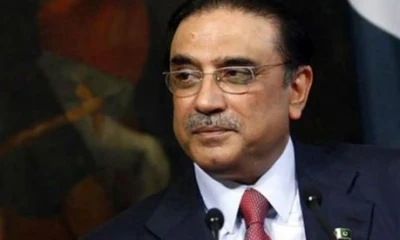
 Pakistan 14 hours ago
Pakistan 14 hours agoPresident summons Senate session on May 21
-
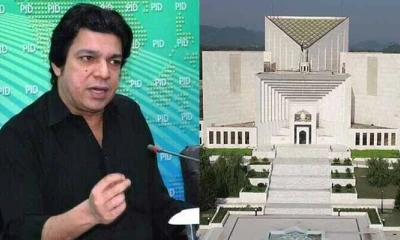
 Pakistan 2 days ago
Pakistan 2 days agoSuo Motu case: CJP seeks response from Vawda, Mustafa
-

 Business 2 days ago
Business 2 days agoGold price dips by Rs600 per tola
-
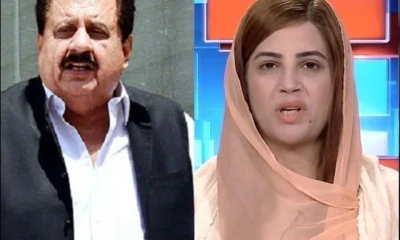
 Pakistan 2 days ago
Pakistan 2 days agoTariq Cheema apologises to Zartaj Gul after NA misconduct
-
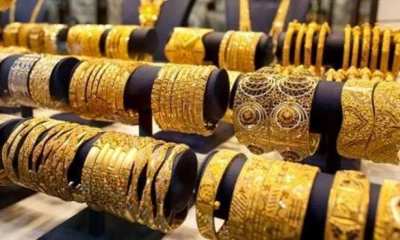
 Business 2 days ago
Business 2 days agoRs1,600 increase recorded in per tola gold price
-
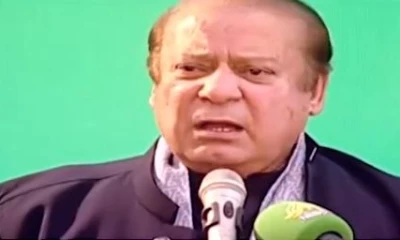
 Pakistan 20 hours ago
Pakistan 20 hours agoIn PML-N huddle, Nawaz Sharif deplores past 'injustices'
-
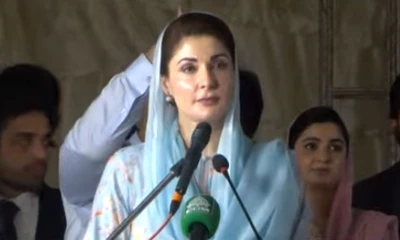
 Pakistan 2 days ago
Pakistan 2 days agoPunjab going to modernise healthcare system: CM


